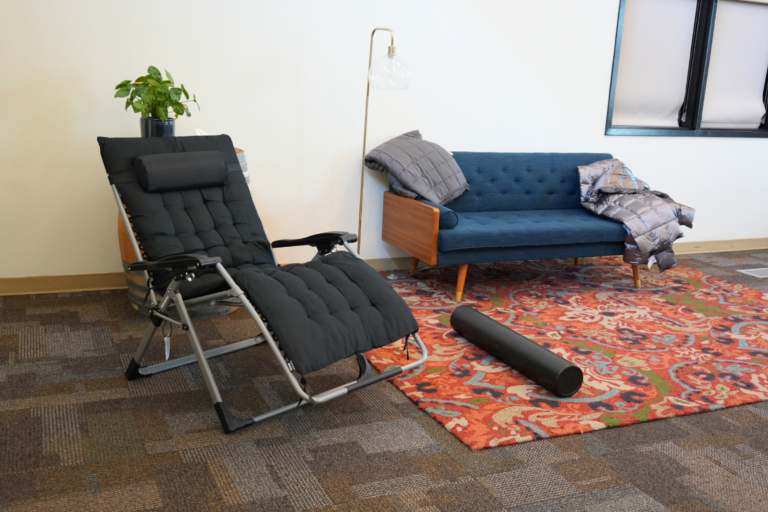These videos created by OMBI are meant to offer education employees evidence-based mindfulness practices to reduce stress and increase health and well-being.
Window of Tolerance: A Key Concept for Mental Health – This video is a brief overview of The Window of Tolerance, a model developed by psychiatrist Daniel J. Siegel to explain how the nervous system responds to stress.
Extended Exhale Activity – Our breath can help us calm down and think flexibly, which allows us to deal with everyday problems in productive and proactive ways. This video highlights an activity to help us access the parasympathetic nervous system (the brake pedal), and learn how to move our attention to physical sensations.
Body Scan – This 12-minute video provides a practice that can help you relax your mind and body.
Progressive Muscle Relaxation – Psychologist Dr. Shin Shin Tang leads one of the most well-researched types of guided meditation – progressive muscle relaxation. This meditation helps release muscle tension and has been found to calm the nervous system and decrease anxiety and pain.
Decreasing Pain with Pendulation – Pain can worsen during times of stress. In this video, Dr. Shin Shin Tang talks you through an effective mindfulness exercise for decreasing pain called pendulation, which was developed by Dr. Peter Levine.

Acknowledgement of Origins
Mindfulness derives from a variety of South Asian and Eastern traditions that go back to 5000-3500 BC. Many of the concepts and practices currently under the umbrella of mindfulness have been passed down over thousands of years, only more recently being introduced and studied in the West or adapted by diverse secular or Western cultures. We acknowledge that practices used throughout the West today stem from the ancient, sacred, and meaningful roots of East and South Asian mindfulness traditions.




